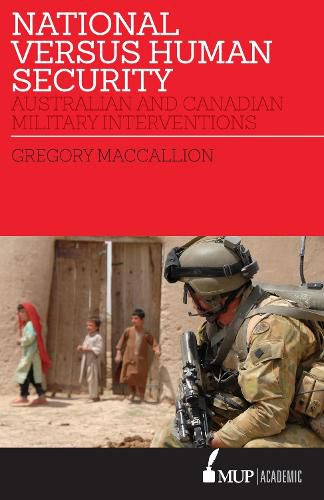Readings Newsletter
Become a Readings Member to make your shopping experience even easier.
Sign in or sign up for free!
You’re not far away from qualifying for FREE standard shipping within Australia
You’ve qualified for FREE standard shipping within Australia
The cart is loading…






Analysing human security and national security.
By examining two military interventions that have defined the post-Cold War period, Somalia (1992-1995) and Afghanistan (2001-2014), this book argues that for Australia and Canada, the concept of human security works better in practice than it does in theory. When human security was first advanced in 1994, debates raged. It was argued that the concept needed an agreed and articulated definition before it could have policy relevance or applicability. The book provides unprecedented access to the key actors and decision makers, including Prime Ministers, military commanders, and senior diplomats.
It argues that the core concept of human security has altered states’ understanding of traditional national security during the implementation of military interventions. The experience of Australia and Canada over this period demonstrates that the concept of human security is becoming more relevant to states, and their policy makers and military planners, as they conduct military interventions.
$9.00 standard shipping within Australia
FREE standard shipping within Australia for orders over $100.00
Express & International shipping calculated at checkout
Analysing human security and national security.
By examining two military interventions that have defined the post-Cold War period, Somalia (1992-1995) and Afghanistan (2001-2014), this book argues that for Australia and Canada, the concept of human security works better in practice than it does in theory. When human security was first advanced in 1994, debates raged. It was argued that the concept needed an agreed and articulated definition before it could have policy relevance or applicability. The book provides unprecedented access to the key actors and decision makers, including Prime Ministers, military commanders, and senior diplomats.
It argues that the core concept of human security has altered states’ understanding of traditional national security during the implementation of military interventions. The experience of Australia and Canada over this period demonstrates that the concept of human security is becoming more relevant to states, and their policy makers and military planners, as they conduct military interventions.